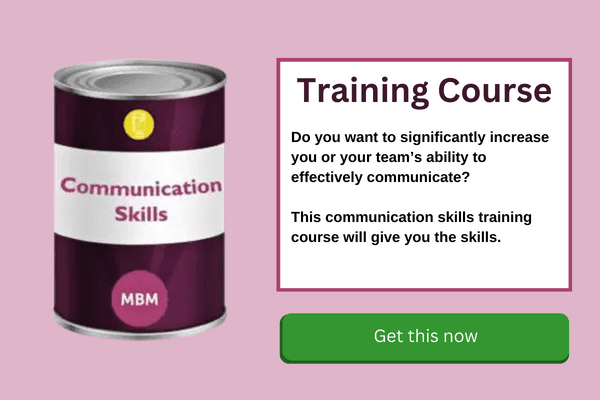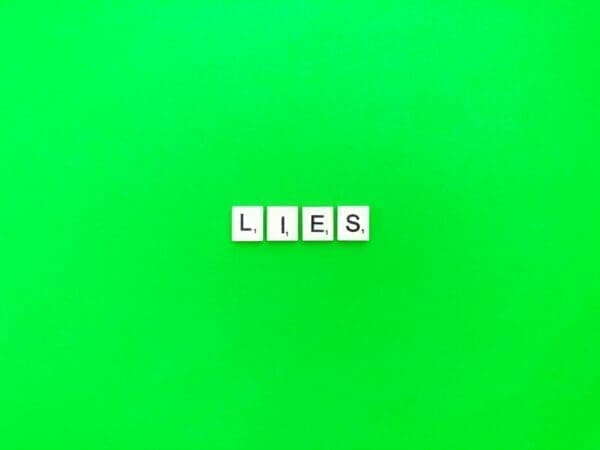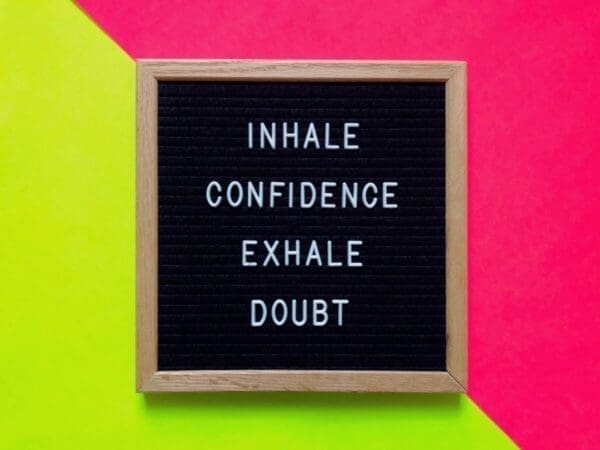Are You Receiving Me, Over?
We all have communication filters. Each person interprets received information through different filters, reflecting our age, gender, culture, emotional state, situational context, beliefs and more. And our unconscious biases add more filters, before people even speak. Some filters can change depending on our emotions and the situation. Others remain consistent.
In this article, we look at how these filters affect the way we handle information. They can get in the way and mislead us. And half the time we don’t realise. We discuss how to recognise our filters and realise how they distort our communication. Meanwhile, kindness, humility and listening skills are powerful forces for restoring the connection.
Take time to understand someone’s point of view, and you’ll go a long way towards appreciating their filters. Owning your filters will improve your work relationships and even help deal with criticism. Start by reading this!
Jump to Menu:
- 1- Communication Filters – the Unspoken Barriers Between Us
- 2- It’s All Part of Being Human
- 3- I’m Glad We Cleared That Up
- 4- Coming Back at You: A 2-Way Street
- 5- Your Problem is, Your Glass is Half Empty
- 6- It’s My Filter and I’ll Cry if I Want to
- 7- AND FINALLY: Communication Filters in a Crisis
- 8- Okay, So You Didn’t Get the Job. Now Move on!

1) Communication Filters – the Unspoken Barriers Between Us
What are Filters in Communication?
Communication filters are habit of thought that can delete, distort or generalise the messages you want to share. And they’re in place for both sender and receiver, in every conversation.
Sticky Learning ® is 7 times more effective than 1-day training courses. Plus, you will get a Chain of Evidence proving your Return on Investment. Discover soft skills training that changes behaviours long term.

Why is it Important to Think About This?
If we don’t recognise that we’re filtering information, the other person may feel we’re not receiving their message. And this could affect our relationship with them.
What are Some Common Types of Filters in Communication?
The consensus is that there are five types:
- Distractions
- Emotional states
- Beliefs and expectations
- Differences in style
- Self-protection
Distractions
When you’re talking, do you have the other person’s full attention? External things like people nearby being noisy, background sounds or hearing problems can all distract. Make it easier to talk to colleagues by asking for their attention.
Emotional States
Our moods affect our communication. We tend to give people more benefit of the doubt in a good mood. In a bad mood, we’re more likely to perceive everything negatively. That happens, no matter how positive the other person tries to be. Don’t use a filter like a bad mood as a reason to treat colleagues badly. Talking about how you feel may be the best first step in a conversation, especially about important stuff.

Beliefs and Expectations
We tend to see what we’re expecting to see, in others and in particular situations. It takes being humble, in today’s language, to recognise we’re doing this and change things. Our expectations not only affect our perceptions but influence the behaviour of those around us. If you believe someone is an extrovert, they’re likely to sound like it.
Even if they’re actually introverted! We “pull” behaviour from others, consistent with what we expect. That’s one reason why, when we’re with people we know well, old habits, feelings and patterns of communication return. And we can easily slip into “mind reading,” thinking we know what someone else means or wants.
Differences in Speaking Style
Many influences determine our style, including culture, gender and upbringing. In one person’s family it may be normal to raise your voice when making a point, not in another’s. So when one person raises their voice in normal conversation someone else may feel threatened. We develop spoken and unspoken rules for talking, caring, making decisions and relating to each other. The secret is to be aware of your rules and learn to adapt them for different people.
Self-protection
Fear is the big enemy, as much as in work as relationships. It can stop us saying what we want to say. Even the thought of putting simple questions to your boss or client can evoke fears of rejection or criticism. The substance of the question may not matter, as much as the feelings it prompts in you.
2) It’s All Part of Being Human
Where Do Our Communication Filters Come From?
Filters are part of our neuro linguistic programming. We’re hard wired for this. Scientific research shows a link between our neurological processes, language and learnt behaviour. There are also generational filters, including in the workplace, such as each age group discovering new ways of communicating. And of course there’s social media, with its power to reinforce attitudes and make our filters worse. It’s down to being aware of these filters and recognising they’re in play.
What is Filtering in Communication?
Filtering is the ‘active’ counterpart of filters. Filtering is what we do when we manipulate information so it’s seen more favourably by the receiver. If the sender hides some meaning and discloses in a fashion that appeals to the receiver, they are “filtering” the message deliberately.
Why Do We Do This?
Filtering happens for two reasons – fear of conveying bad news, and to please the receiver.
What is an Example of Filtering in the Workplace?
A classic example is a manager who keeps poor sales figures from their boss, fearing the bad news will make them angry.
So is Filtering the Same as Lying?
No it isn’t. Filtering is sharing partial information. Lying is sharing wrong and false information. Both lead to misguiding the audience, but filtering doesn’t involve specifically telling lies.

3) I’m Glad We Cleared That Up
Everyone in business aspires to be an effective communicator. But at times our communication filters can become blockers.
6 Pillars of Effective Communication
- Assertiveness
- Authenticity
- Open mindedness
- Empathy
- Clarity
- Listening
In order not to misunderstand the other person, we need to apply all these pillars. Communication in work is hard enough, but various barriers can hinder it. Here are some:
The Top 7 Barriers to Effective Communication in the Workplace
- Lack of confidence.
- Stereotypes and generalisations.
- Being unclear: information overload: words mean different things to different people.
- Poor body language.
- Weak conversation skills.
- Not listening properly: emotions getting in the way.
- Dishonesty: not being criminally minded, but fearing the consequences of openness.

7 More Barriers to Effective Communication
- Physical barriers: marked out territories: closed doors for bosses: screens: different areas for different grades: open plan work areas.
- Perceptual barriers: Everyone sees the world differently – but they may not think they do! Openness and validation can sweep these barriers away.
- Emotional barriers: Fear, mistrust and suspicion start in infancy when we learn to be careful what we say to others. While some caution may be wise, excessive fear of others’ negative response stunts our development as effective communicators. It also affects our ability to form meaningful relationships.
- Cultural barriers: When we join a group and wish to remain, sooner or later we must adopt its behaviour patterns. These are behaviours they expect from us as signs of belonging. Groups reward such behaviour through acts of recognition and inclusion.
- Language barriers: There may be language barriers at work, whether people from different ethnicities or technical language for various disciplines.
- Gender barriers: Hopefully these are progressively breaking down with diversity and inclusivity, but they still need to be considered.
- Interpersonal barriers: Insecurity can make us erect barriers, adding to our communication filters.
These can include:
- Withdrawing from the environment.
- Working, not socialising.
- “Games playing”.
4) Coming Back at You: A 2-Way Street

How Do You Overcome Communication Filters?
The sender can overcome these barriers by:
- Using appropriate language: Keep your message clear.
- Understanding the receiver: Think about how the other person will interpret it.
- Developing the receiver’s confidence: By clearly mastering their subject, the sender creates confidence and trust in the receiver.
- Encouraging feedback: Giving feedback helps the sender know the receiver understands the message.
- Using face to face communication: Trigger warning! This is debatable! Some people maintain written communication isn’t as effective as face to face. However, we do have email and videoconferencing. And phones.
- Repeating as necessary: Complex messages may need repetition, to ensure understanding. But written briefs hopefully only need to be sent once, though they may require clarifying.
- Using pictures: The sender can also use pictures or visuals in information decks.
The receiver can overcome their filters by various techniques:
- Effective listening: Active listening is one way to overcome barriers. But it takes hard work and effort to increase our concentration on what’s being sent.
- Avoid judgement: This distorts the communication – and yes, it’s a filter.
- Provide feedback: The receiver provides true, honest feedback about what they feel.
- Written communication: As with face to face communication, this has both advantages and disadvantages. It’s great for lengthy communication and when people don’t physically work together. But there are still plenty of chances of being misunderstood!
5) Your Problem is, Your Glass is Half Empty
Mental Filters in Communication
Sometimes our communication filters can become problematic. ‘Mental filter’ is a term therapists use to describe a particular type of cognitive distortion or faulty thought pattern. These can lead to increased levels of anxiety and depression. When they see the world through a mental filter, a person focuses only on the negative aspects of situations. They filter out all the positives. People with this level of negative thinking often see their glass as half empty, rather than half full.
Do you feel your colleague is using a mental filter to sift out the pleasant and fulfilling parts of their life? Encourage them to think about their wellbeing. Otherwise, their anxiety levels will go on rising as they continue filtering out their positivity.

6 Barriers to Workplace Communication
These next barriers are less problematic than mental filters. But if they continue to apply, they can lead to mental filters forming:
- Dissatisfaction with, or disinterest in, one’s job.
- Inability to listen to others.
- Lack of transparency or trust.
- Different communication styles.
- Workplace conflicts.
- Cultural differences and language problems.
It’s up to leaders and managers to talk about workplace communication with their teams. Coaching in listening skills will encourage reflection.
6) It’s My Filter and I’ll Cry if I Want to
There are plenty of good reasons for taking a positive approach to all this. Communication with others is tough enough, without these filters distorting your understanding and creating negative internal narratives. That will just add to your difficulties. Better, if you find this filtering is happening, keep an open mind. Assume nothing and reflect on the actual messages you are receiving.
Sometimes, in a complicated situation with much to interpret, things can feel fraught. This is when you may seriously start to wonder about your filters and your perceptions. Our friends the therapists would say at this point, to be gentle with yourself and others around you. So take their advice. Be aware of your filters. Think about their truth. Remember, these are your values and your boundaries.
7) AND FINALLY: Communication Filters in a Crisis
In normal conditions, our filters are the lens we see the world through. They help us feel safe and grounded. But sometimes, it’s not going well. That’s fine. You’re allowed to be vulnerable. You may find you’re in a bad mood, or stressed and unable to focus. That’s fine. Take time out to become calm again and manage how you respond to the situation. We own our filters, they don’t own us.
If things don’t go our way in business, we can find ourselves getting agitated. Our fight or flight reaction kicks in and we get uncomfortable. Maybe we’ve interacted with the other person and got het up about their response, and we overthought it. We need to calm down. Take a step back. We’re still okay. We were always okay. Even when we thought we weren’t.
Now it’s time to bring up the ‘C’ word. CRITICISM! The horror! How do we react? Often, we internalise it, which generates a lot of negative emotions. These have no relevance to what the other person is actually thinking. They want us to present a suitable solution, so they can move on. And the other person most likely has plenty of other stuff to deal with, besides us. If we let ourselves get agitated about this transaction, we might blow the relationship. Stay calm.
8) Okay, So You Didn’t Get the Job. Now Move on!

Sometimes, our communication filters are positively helpful. In our normal life, we tend to see things that please us and ignore unpleasant stuff. This selective perception allows us to keep our dissonance –conflicting elements in our perception set – at a tolerable level.
When we get unpleasant news, our survival instinct kicks in and we go into shock. We instinctively resort to selective perception. This perceptual distortion is a barrier to effective communication for other people wanting to reach us at this time. But for us, it’s good.
When we encounter something that doesn’t fit our current image of reality, we structure the situation to minimise our dissonance. Say you’re told you’re not suitable for a job because you don’t have a particular set of skills. You may choose to overlook this information. It doesn’t fit your current perception of the world.
Right now, you feel rejected. You deserved that job. The person on the phone is telling you these are the specific areas you fell short. You could learn about them on a course. But you don’t take it in. You let your emotions affect you.
What you should do instead is, be self-aware. Watch your communication filters working and stand back from it. Yes, this rejection is a loss. You’re going to go through something like the five stages of grief – denial and isolation, anger, bargaining, depression and acceptance. Step away from the vehicle, as the cops say in the movies. Give yourself space and time to calm down. And then pick yourself up and crack on!
Action: For even more useful content on communication, check out our ultimate guide on communication skills.




